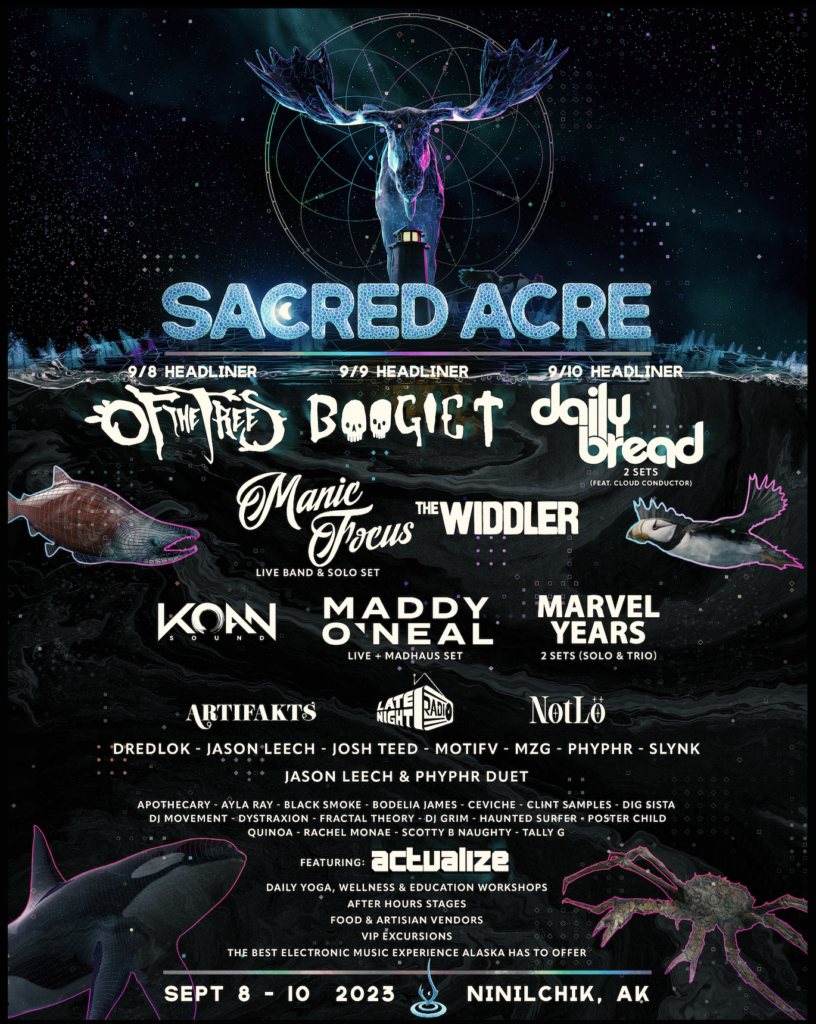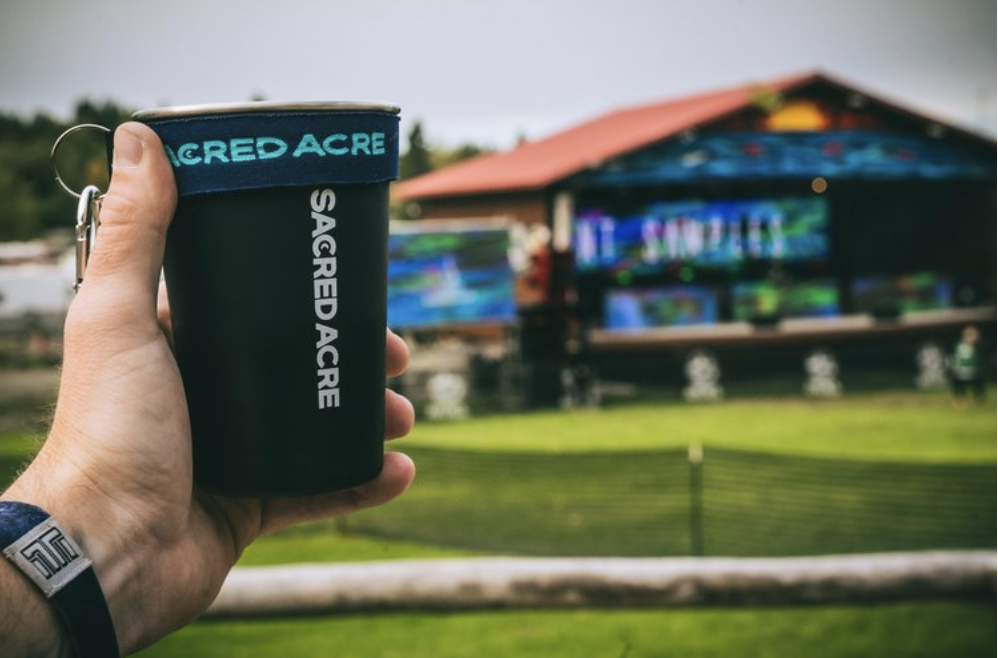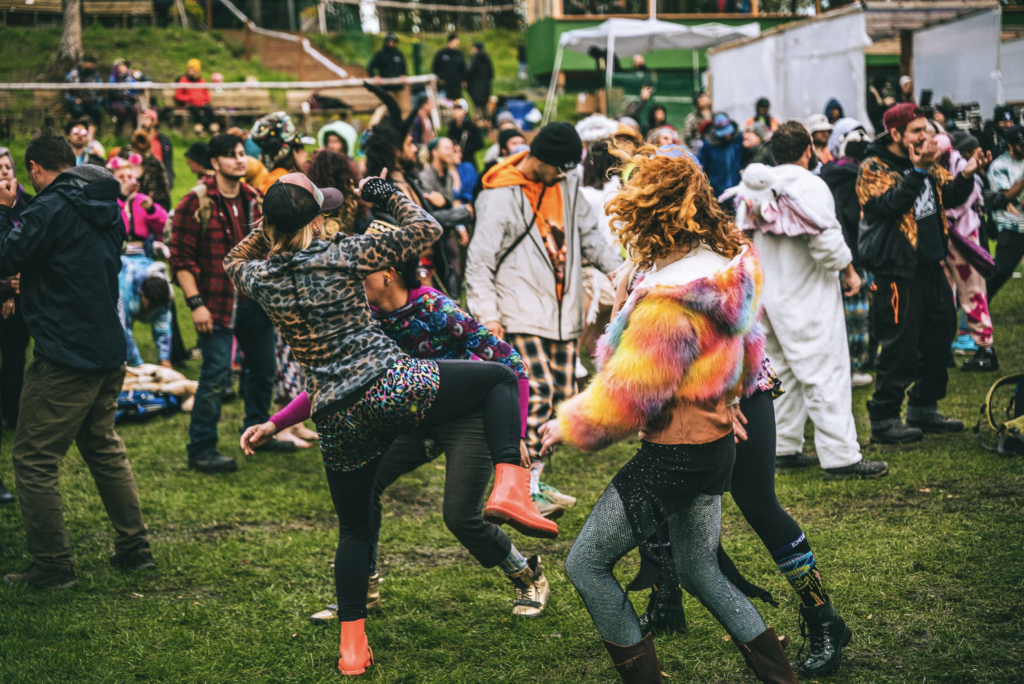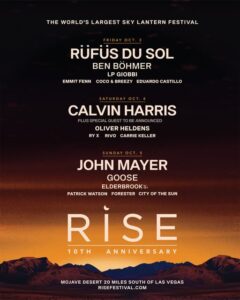Alaska’s wild frontier is one of the few places left on Earth where nature’s beauty can be seen and experienced in its rawest form. Here, amid schools of salmon and wild grizzly bears, a diverse, yet fragile, ecosystem finds its sacred abode. On September 8 – 10, 2023, for the second consecutive year, Ninilchik will host Alaska’s environmentally focused bass festival, Sacred Acre.

Sacred Acre’s core mission is to bring awareness to trawling, a highly destructive industrial fishing practice. Trawling uses a colossal net and drags it across the ocean floor, capturing all in its path and leaving behind a trail of devastation, as the nets, equipped with heavy weights, obliterate coral reefs and seaweed habitats upon which many aquatic creatures rely. Non-target species with little to no market value, are trapped and killed needlessly during this pursuit of higher-value fish; the animals and plants killed this way are known as bycatch.
Emerging during the late 18th and early 19th centuries, trawling proved to be so effective that within a decade, it became the standard fishing practice along the Pacific Northwest. Sadly, this efficiency came with severe environmental costs. By the mid-19th century, environmentalists noticed a significant decline in fish populations, mostly due to trawling net bycatch. The Sacred Acre project aims to provide a platform to educate and advocate for less destructive industrial fishing practices by offering a space where people come together to share information about trawling and other critical issues affecting Alaska’s oceans, wildlife, and waterways.
Moon Lvnding was fortunate to engage with the organizers behind Sacred Acre: Director Chris Miller and Assistant Director Hannah Stearns. They offered valuable insights into the far-reaching effects of trawling on the Alaskan community and how Sacred Acre seeks to spread awareness about the use of more sustainable practices. Stearns describes the consequences of trawling, “We are watching the number of salmon and other animals dwindle to extinction… It’s really prevalent, and so close to home.” The environmental activist and festival director has also witnessed this destruction in his backyard and is using the power of music to inspire change. Having worked in the seafood industry for 15 years, Miller sheds light on the misleading information surrounding the sustainability of industrial fishing, “We are told that this seafood is sustainable, but it really isn’t.”
As part of its commitment to environmental stewardship, Sacred Acre is working to become a zero-plastic event. Onsite vendors must use recyclable or compostable supplies, and drinks will be served in reusable metal tumbler cups. “We are also working with a compost company to bring all food scraps to local farms to further reduce our footprint… but eliminating plastic is number one,” Miller shared. He points out that Sacred Acre is a boutique festival, and explains that boutique festivals are more sustainable than larger festivals.

While the music remains the festival’s focal point, Sacred Acre ensures attendees can enjoy the state’s natural beauty and immerse themselves in the Alaskan frontier. In 2023, a range of excursions awaits visitors, from native plant foraging and flyfishing expeditions to helicopter tours and an intimate boat party with some of the performing artists. Everyone will have the chance to explore the beauty surrounding the venue. The organizers aim to showcase Alaska and instill an appreciation for its preservation, stating “We want to be a destination festival and really show the people in the lower 48 why they need to protect these places.”
Looking towards the future, Miller and Stearns envision growth for Sacred Acre, aspiring to establish their own non-profit organization to combat factory trawling. In discussing the first Sacred Acre in 2022, Chris shares, “Last year, both creatively and production-wise, it was a huge success. The movement has started, and now it is time to keep that momentum going.” Until then, Miller urges everyone to “buy conscious” by being an informed consumer and making choices to support sustainable practices.

With the directors’ guidance and the support of all those attending Sacred Acre this fall, the movement against factory trawling will only get stronger. Miller believes that through the power of music, great things can be achieved. Tickets are still available on the festival website, but regardless of whether you can attend, spreading knowledge and information about the perils of commercial trawling is essential. Moon Lvnding has included some resources below for those wanting to read more about the destruction taking place. To protect Alaska’s indigenous communities and our entire aquatic ecosystem, the time for action is now!
Educational links:













